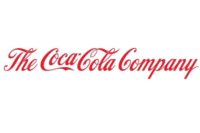The Coca-Cola Co., Atlanta, published its seventh systemwide Sustainability Review, titled “Our Commitment to Making a Positive Difference in the World.” The review, which releases 25 sustainability goals across seven focus areas for the company and its bottling partners and also reports the company's sustainability strategy and progress, is available online at www.sustainability.thecoca-colacompany.com.
The Sustainability Review profiles the company's and its bottling partners' efforts to grow business in economically, environmentally and socially sustainable ways. It was created using stakeholder feedback and the disclosure requirements of the Global Reporting Initiative, the United Nations Global Compact and the CEO Water Mandate. The review includes summaries of company and bottling partner performance and progress across seven core areas key to Coca-Cola's business sustainability: Beverage Benefits, Active Healthy Living, Community, Energy Efficiency and Climate Protection, Sustainable Packaging, Water Stewardship, and Workplace. Performance highlights from the 2009/2010 Sustainability Review include the following:
•The company launched more than 180 low- and no-calorie drinks in 2009, increasing its low- and no-calorie beverage portfolio to more than 800 beverage products.
•Supported First Lady Michelle Obama's Let's Move! Initiative along with a coalition of food and beverage manufacturers pledging to cut 1.5 trillion calories from their combined product portfolios nationwide by the end of 2015.
•Announced "5 By 20" initiative, a 10-year global commitment to empower 5 million women inside and outside the Coca-Cola system by 2020.
•Launched Haiti Hope Project, a five-year, $7.5 million program to double the income of 25,000 Haitian mango farmers; raise the standard of living for the farmers; develop sustainable farming practices; plant new mango trees; and improve the participation of women in fruit production.
•Launched Project Nurture, a program designed to enable more than 50,000 small fruit farmers to double their income by 2014. This four-year, $11.5 million partnership with Technoserve and the Bill & Melinda Gates Foundation invites mango and passion fruit farmers in Uganda and Kenya to be suppliers to the Coca-Cola system for the first time, providing fruit for locally produced juices in the Coca-Cola portfolio.
•Improved energy use efficiency 13 percent since 2004 and reduced absolute emissions from manufacturing operations in developed countries by 8 percent since 2004.
•Advanced energy efficiency of cooling equipment with installation of some 3.1 million intelligent energy management devices to date, reducing energy consumption by monitoring energy use on refrigeration units.
•Placed more than 127,000 hydrofluorocarbons (HFC)-free refrigeration systems, bringing total placement to more than 240,000 units. Working to phase out the use of HFCs in all new cold drink equipment as of 2015.
•Delivered 2.5 billion PlantBottle packages in nine major markets while working to advance the use of PlantBottle packaging in every bottle sold by 2020.
•Avoided the use of approximately 85,000 metric tons of primary packaging through systemwide packaging efficiency efforts, resulting in estimated cost savings of more than $100 million.
•Supported the direct recovery of 36 percent of the bottles and cans placed into the market by the Coca-Cola system.
•Achieved a 13 percent improvement in water use efficiency since 2004, using an average of 2.36 liters of water to make one liter of beverage.
•Announced expansion of global partnership with USAID with additional joint investment of $12.7 million focused on watershed management, water supply and sanitation, hygiene promotion and productive water use.
•Since 2005, engaged in more than 250 community water partnership projects in more than 70 countries, replenishing the equivalent of 22 percent of the water used in the Coca-Cola system's finished beverages
•Launched systemwide water resource sustainability standard requiring each of the more than 900 bottling plants to evaluate the sustainability of the water resources used to produce beverages and develop a source water protection plan by 2013.




